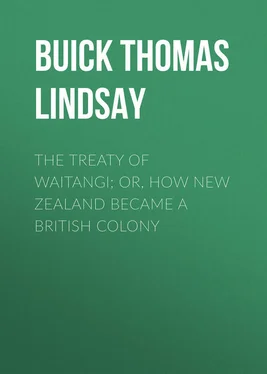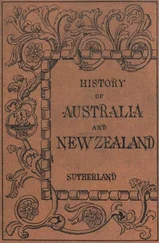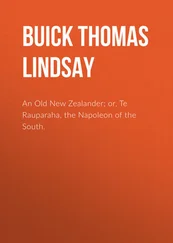Thomas Buick - The Treaty of Waitangi; or, how New Zealand became a British Colony
Здесь есть возможность читать онлайн «Thomas Buick - The Treaty of Waitangi; or, how New Zealand became a British Colony» — ознакомительный отрывок электронной книги совершенно бесплатно, а после прочтения отрывка купить полную версию. В некоторых случаях можно слушать аудио, скачать через торрент в формате fb2 и присутствует краткое содержание. Жанр: foreign_antique, foreign_prose, на английском языке. Описание произведения, (предисловие) а так же отзывы посетителей доступны на портале библиотеки ЛибКат.
- Название:The Treaty of Waitangi; or, how New Zealand became a British Colony
- Автор:
- Жанр:
- Год:неизвестен
- ISBN:нет данных
- Рейтинг книги:5 / 5. Голосов: 1
-
Избранное:Добавить в избранное
- Отзывы:
-
Ваша оценка:
- 100
- 1
- 2
- 3
- 4
- 5
The Treaty of Waitangi; or, how New Zealand became a British Colony: краткое содержание, описание и аннотация
Предлагаем к чтению аннотацию, описание, краткое содержание или предисловие (зависит от того, что написал сам автор книги «The Treaty of Waitangi; or, how New Zealand became a British Colony»). Если вы не нашли необходимую информацию о книге — напишите в комментариях, мы постараемся отыскать её.
The Treaty of Waitangi; or, how New Zealand became a British Colony — читать онлайн ознакомительный отрывок
Ниже представлен текст книги, разбитый по страницам. Система сохранения места последней прочитанной страницы, позволяет с удобством читать онлайн бесплатно книгу «The Treaty of Waitangi; or, how New Zealand became a British Colony», без необходимости каждый раз заново искать на чём Вы остановились. Поставьте закладку, и сможете в любой момент перейти на страницу, на которой закончили чтение.
Интервал:
Закладка:
The basis on which these Atlantic colonies had been established was that of business concerns; for it was officially stated that the Association's scheme was objected to because of the absence of an actual subscribed capital, and the consequent want of protection to those proceeding to the colony as emigrants. For the reasons already given, the stipulation that the Association should convert itself into a Joint-Stock Company was so contrary to the motives which had inspired it that it was at first, and still was, hotly resented and resisted by its principal and truly philanthropic promoters. Many of these now withdrew from the ranks of the Association; but others, rather than give up the hope of colonising the Islands, consented to comply with the demand of the Minister, after Parliament had rejected their Bill, as they wrongly assumed, for the insufficient reason of a non-existent capital. The Association then, in 1838, became a Company, shares were issued, capital subscribed, the reorganisation changing its whole character from a quasi-benevolent to a strictly commercial concern, whose business it was to buy land at a low price in New Zealand, and sell it at a high price in England. 36 36 "I was the principal founder of the Company and the principal Managing Director from the time of its formation till the summer of 1846, allowing for intervals of absence occasioned by illness and other occupation at a distance from England. My incapacity changed the whole character of the direction of the New Zealand Company's affairs, which then fell into the hands of a few persons in whose minds sound principles of colonisation and colonial government were as nothing compared with pounds, shillings, and pence." – Evidence of E. G. Wakefield before a New Zealand Parliamentary Committee on New Zealand Company's debt – Sessions 1 and 2.
In the meantime a change had taken place at the Colonial Office. Lord Glenelg had fallen over his Canadian policy, and in the year following its reconstruction, the Company, on the ground that they had now complied with all that had been stipulated for, approached his successor, Lord Normanby, "with a view of obtaining, through his Lordship's intervention, a Royal Charter of Incorporation." Upon what took place at this interview the widest divergence of opinion appears to exist. The Company claimed that the Minister received them with the greatest affability and encouragement, and that in consequence they left the Colonial Office in high spirits at the very favourable reception they had met with, and were perfectly satisfied in their own minds that all opposition to their scheme had not only ceased, but that they could proceed with the full concurrence of the Government.
Their feelings may, therefore, be easily imagined when, within forty-eight hours of their meeting with the Minister, they received an official letter from Lord Normanby, dated March 11, 1839, in which his Lordship warmly repudiated the suggestion that the Government was in any way bound to give effect to his predecessor's promise. He pointed out that Lord Glenelg's offer had been distinctly rejected by those to whom it was made; that they had since applied to Parliament for powers which they had failed to procure from the Crown; and that the personnel of the Company had so completely changed that by no process of reasoning could it be argued that the promise of Ministerial approval had been given to the same people as were now making the application. He therefore claimed that he stood unfettered by any pledge, and was free to discuss the question in the public interests, and for the public as though the rejected offer of 1837 had not been made.
In thus sternly refusing to countenance the proceedings of the Company, the Minister may have been induced to adopt the course he took by a reason altogether different from that which he gave, but one which he found more difficult to diplomatically express. For directing his attention to the change in the personnel of the promoters he was indebted to his Departmental Secretary, Mr. Stephen, who had kept the strictest watch upon the correspondence of the Company, and when the request, now under review, was preferred, he wrote a Memorandum to his Minister which may have profoundly influenced the mind of Lord Normanby.
"You can see," he said, "from looking over the list of the proposed Directors, that the leading members are now Roman Catholics. If this business is committed to them, New Zealand will infallibly become a Roman Catholic country. I am convinced that this would give the most severe offence to all the religious bodies which have established Missions there. I cannot withhold expressing my own opinion that the objection would be perfectly just and well founded. As long as we have the choice of establishing Popery or Protestantism in any part of the world I cannot understand how any one, not a Roman Catholic, would hesitate what that choice should be." 37 37 For the text of the above Memorandum I am indebted to Mr. R. M'Nab, who copied it from the original in the Record Office, London. Mr. Stephen, who wrote the Memorandum, was, at the time, an officer of the Church Missionary Society.
How far the suggestion of Mr. Stephen weighed, or did not weigh, with his chief can now only be a matter of merest speculation, for unfortunately little in the way of record has been left to guide us. It is possible that under the sway of the religious feeling which existed in England at that time he did not altogether disregard it, but it is more probable that the circumstance which weighed with him most was the fact that since Lord Glenelg's day the Government had received more serviceable advice as to their powers under the Law of Nations, and that finding it was not within their right to issue a Charter affecting New Zealand, they were then considering the suggestions made by Mr. Busby and Captain Hobson, and were even at that moment contemplating the steps which they afterwards took. Lord Normanby would, under these circumstances, find it difficult and inexpedient to refer in definite language to these immature plans, and consequently the general terms in which he was compelled to speak may have misled the members of the Company who waited on him to sue for a Charter. In considering a petition from the Merchants, Bankers, and Shipowners of the City of London respecting the colonisation of New Zealand, an effort was made by a Committee of the House of Commons, in 1840, to discover exactly what was the attitude of the Ministerial mind at this juncture. Mr. Gibbon Wakefield complained that the Company had been scurvily treated by Lord Normanby, who had led them to suppose that they had his sympathy and approval, and had then, within a comparatively few hours, despatched the letter in which he refused to be bound by the promise of his predecessor to issue a Charter. In reply to this accusation, Mr. Labouchere, who was then Under-Secretary at the Colonial Office, and might, therefore, be expected to have some inside knowledge, took the view that the Minister had been misunderstood, and asked whether the position was not this: That Lord Normanby had stated to the Company that he considered their objects very useful and laudable, and that he should have been disposed to give them his most favourable consideration, provided New Zealand were a British colony; that he intended to take steps that he believed would probably lead to the constitution of New Zealand, either wholly or in part as a British colony; but that till those steps had been taken it would be utterly inconsistent with his official duty, not only to give encouragement, as a Minister, to the proceedings of the Company, but even to recognise them in any way whatever?
To this Mr. Wakefield's answer was: "My impression has always been that when Lord Normanby received those gentlemen he sincerely felt what he said; that he was glad to see persons of so much influence, and of such station in society, engaged in such a work; but that after the interview he came into communication with the officers of his Department, and received information of what had passed before, for he was quite new in the office, 38 38 Lord Normanby became Colonial Secretary on February 8, 1839.
and that the letter written after the interview, which was so much at variance with it, was written rather by the office, I should say, than by Lord Normanby himself, for the purpose of maintaining the consistency of the course which the Government had pursued."
Интервал:
Закладка:
Похожие книги на «The Treaty of Waitangi; or, how New Zealand became a British Colony»
Представляем Вашему вниманию похожие книги на «The Treaty of Waitangi; or, how New Zealand became a British Colony» списком для выбора. Мы отобрали схожую по названию и смыслу литературу в надежде предоставить читателям больше вариантов отыскать новые, интересные, ещё непрочитанные произведения.
Обсуждение, отзывы о книге «The Treaty of Waitangi; or, how New Zealand became a British Colony» и просто собственные мнения читателей. Оставьте ваши комментарии, напишите, что Вы думаете о произведении, его смысле или главных героях. Укажите что конкретно понравилось, а что нет, и почему Вы так считаете.












